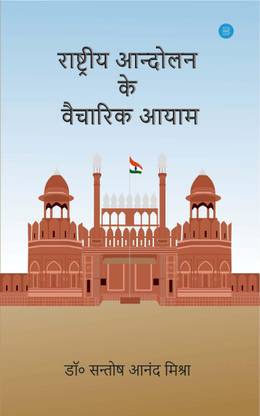Ramdhari Singh 'Dinkar' (23 September 1908- 24 April 1974)
Early life and education:
Ramdhari Singh 'Dinkar' was born on 23 September 1908 in Simaria village of Begusarai district of Bihar in a simple farmer family. His father Ravi Singh was a middle class farmer. Dinkar's father died when he was only two years old. He was brought up in very difficult circumstances. His mother worked hard to educate the children.
Early education was done in the village and later he studied in Mokama High School. Despite financial difficulties, he obtained a bachelor's degree in History, Political Science and Philosophy from Patna University in 1928. It was here that the feelings of patriotism and cultural consciousness intensified within him.
Literary era and trends:
Dinkar is considered to be the main poet of the post-Chhayavaad period. But in his literature, there is a coordination of all - Chhayavaad, Realism, Progressivism and Nationalism. He is known as the “poet of vigour”, “national poet” and “pioneer of revolution”. He connected Hindi poetry to the consciousness of the masses.
His literary tendencies were:
Dominance of vigour and heroic sentiments
Consciousness of nationalism and freedom struggle
Revolt against social injustice
Rereading of religious and cultural values
Presentation of modern contexts through mythological characters
Features of the poetry:
(a) Rashmirathi –
In this epic, the importance of Karna, his suffering, self-esteem and the struggle with destiny have been presented with great poignancy and vigour.
Famous lines:
“Time will write the crimes of those who are neutral”
“When adversity comes, it only shakes the cowards,
The brave do not get disturbed, they do not lose patience even for a moment.”
(b) Kurukshetra –
Against the backdrop of the Mahabharata war, this poem redefines the definition of religion, peace, justice and power.
Main message: – Is war necessary? Is non-violence supreme or is violence also a religion for justice?
(c) Hunkar –
The poems of this collection are a declaration of revolution against the British Raj. Dinkar challenged the people and inspired them in the freedom struggle.
Famous line:
“What difference does it make if the chest is of someone, the bullet may hit India!”
Contribution to prose literature:
Sanskriti Ke Char Adhyay (1956):
This is Dinkar’s most famous prose work in which he divided India’s cultural journey into four chapters and proved that India’s culture is a culture of tolerance, coordination and unity in diversity.
Ardhanarishwar:
This essay collection presents deep reflection on topics like man-woman relationship, role of women in society, patriarchy and gender justice.
.
Political life and ideology:
Ramdhari Singh Dinkar awakened the people with his thoughts and poems during the freedom struggle. He was influenced by leaders like Gandhi, Subhash, Nehru, Lohia and Jaiprakash Narayan, but he was not bound by any one ideology. His natural inclination was towards socialism and nationalism.
He was a member of the Rajya Sabha (1952-1964) in independent India.
He was appointed as Hindi advisor by the Government of India.
His speeches given in Parliament are considered to be very scholarly and full of vigor.
Awards and Honors:
Padma Bhushan (1959)
Sahitya Akademi Award (1959) – for Sanskriti Ke Char Adhyay
Bharatiya Jnanpith Award (1972) – for Urvashi
Honorary degrees by universities
The title of Rashtrakavi was given to him by the public and Hindi literature
Dinkar's critical vision:
Dinkar was also a critic who gave a new vision to Hindi literature, Indian history, culture and politics. He deeply imbibed Indianness in his works.
He believed that -
"If the nation has to be strengthened, then literature and culture have to be taken to the masses."
Death and memory:
Ramdhari Singh Dinkar died on 24 April 1974 in Chennai (Madras). After his death, mourning was expressed across the country.
"Dinkar Smriti Sansthan" in Patna
"Dinkar Bhawan" in Delhi
Memorial functions are organized by the Sahitya Akademi and the Government of India.
Ramdhari Singh Dinkar was not only a poet, he was the voice of the Indian soul. He connected literature to the common people and made it a medium of revolution, consciousness and love. His literature is a living document of the values of Indian culture, bravery and justice. Even today his poems inspire the nation.
He was a warrior of literature – pen was his weapon and poetry was his battle cry.













0 Comments
Thank you